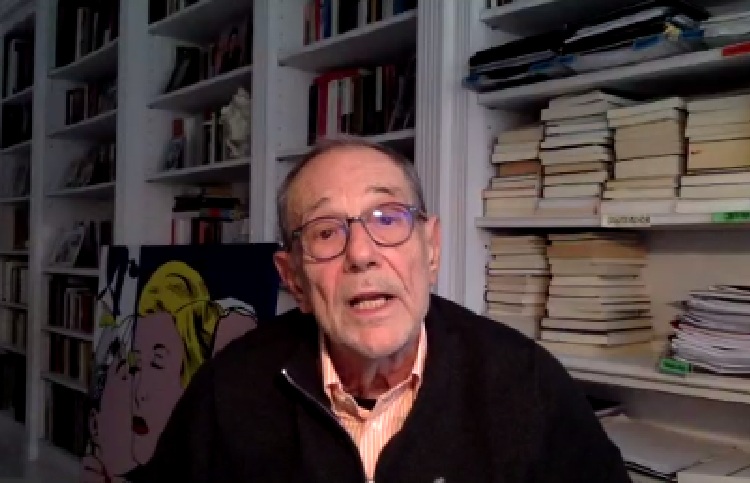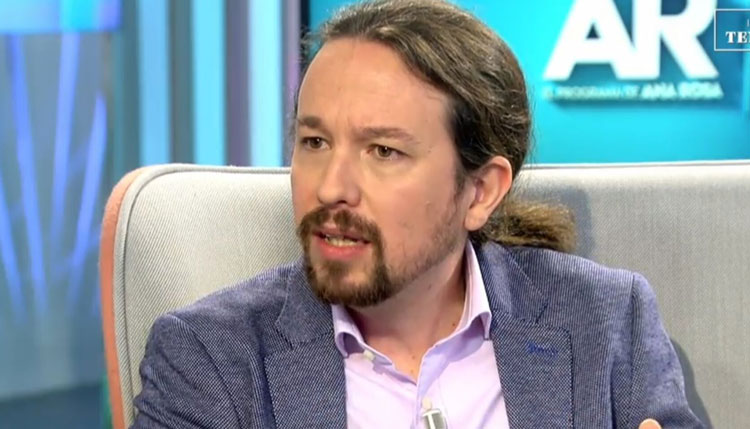Eduardo González
The former Minister of Foreign Affairs and former EU High Representative for Foreign Policy and Common Security (CFSP) Javier Solana yesterday painted a relatively optimistic picture of the first steps of the new U.S. President, Joe Biden, in terms of foreign policy, although he warned that the relationship with China will continue to be one of “extreme competition” but avoiding confrontation “so that it does not escalate”.
“The most important thing is that Biden has revoked all of Donald Trump’s big decrees, or at least the most important ones that have to do with our issue, and the new teams he has formed are of great prestige”, said the former NATO secretary general during his speech at the online colloquium USA and China: can they coexist? Challenges for the EU, organized by Fundación Alternativas.
Another of the most important measures of the new US Administration, he continued, has been “the return to the Paris Agreement” and its aim to become an “emissions-neutral country by 2050”, like the EU and China. “In the fight against climate change is where we are most likely to see considerable results in the short term”, Solana stated. If multilateral cooperation on environmental issues obtains good results, it could serve as a “catalyst” for cooperation in “other areas of international negotiation” and contribute to “creating trilateral cooperation” between the US, the EU and China “on issues such as climate change or energy”, he continued. “It would be extraordinarily beautiful if we are able to achieve it, and I think we are going to achieve it”, he added.
Solana also valued very positively the change of position of the United States, “clearly, although not completely”, with respect to the World Trade Organization (WTO) and “the rapid return” of Washington to the World Health Organization (WHO), which “Trump abandoned at the most complicated moment due to the coronavirus pandemic”, He also highlighted the appointment of Rob Malley as special envoy for Iran, “a very important signal that has gone down very badly in Tel Aviv but is magnificent news for the challenge of the world”, and Biden’s decision to resume funding to the UN agency for Palestinian refugees (UNRWA), another “magnificent news”.
As far as China is concerned, Javier Solana warned, the new US government will maintain, as a “general rule”, a policy of “extreme competition” but avoiding confrontation and “trying not to let things escalate”. In general terms, he explained, the two great world powers will maintain “cooperation in those areas that have to do with the values of the globalized world, such as climate change or energy”, but the situation will be much less flattering in two critical areas such as technology and trade.
“China today produces eight times more engineers, mathematicians, physicists, chemists and biologists than the rest of the planet, and four times more than the US if we take into account the difference in population, which shows the extraordinary technological and intellectual capacity of the country. This is something we have to accept, and if we do not cooperate with them we are going to reach a confrontation of great dimensions“, he warned. As for the trade relationship between China and the US, Solana believes that “the situation is very complicated, because China has the upper hand at the head of a huge trade group in the Pacific and the US is on the outside because of Trump’s maneuvers”.
In any case, he said, “we have to get used to the idea that (Chinese President) Xi Jinping is going to be in power until at least 2035; he will be 82 years old, the same age that Mao Zedong was when he died, and these things in Chinese political liturgy have a lot of importance”. “Xi is going to last a long time and we had better conduct the relationship with China in the best possible way, because it’s going for a long time”, he warned.
“The U.S. has to do its part to advance relations with the Asian giant. We must all collaborate and do everything possible so that the temperature does not rise and avoid a catastrophic situation”, said the former foreign minister. “We should think very carefully about what we say before criticizing China or Russia. Diplomacy is the closest thing to gardening; it is very important to be careful and to reach consensus and build trust, and right now we are devoid of those tools”, he concluded.







